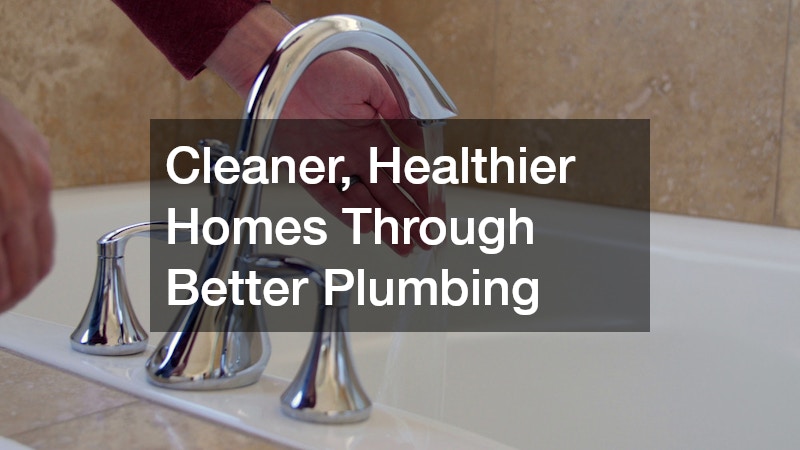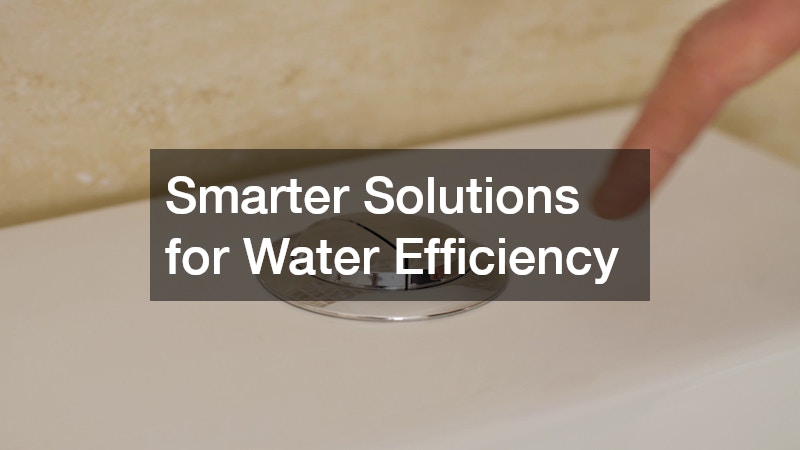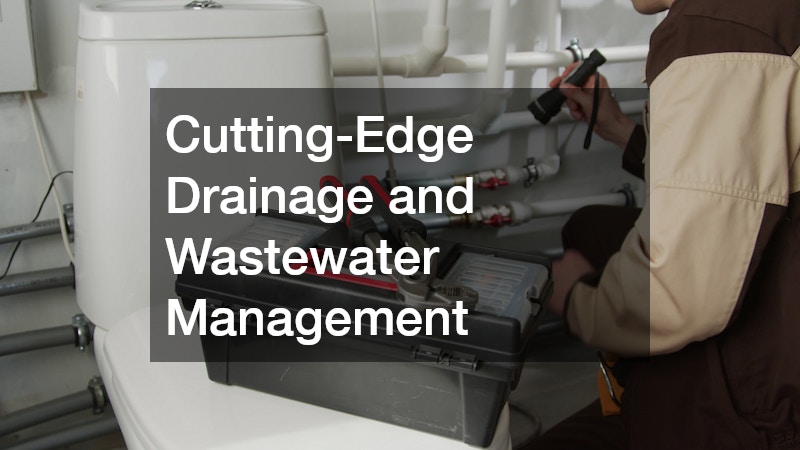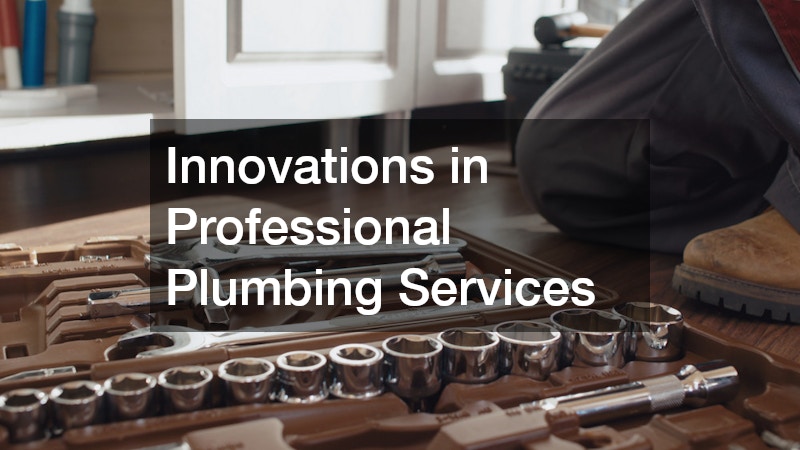Modern Day Plumbing Innovations Every Home Should Know About
Modern homes are not just about stylish kitchens, smart devices, or energy-efficient appliances—they’re also about the systems behind the walls and beneath the floors that make daily living seamless. One of the most vital systems is plumbing, a network that ensures clean water flows in, waste flows out, and everything in between runs smoothly. Over the past few decades, modern day plumbing has evolved in remarkable ways. Homeowners now have access to technologies that not only solve long-standing problems but also increase efficiency, reduce environmental impact, and prevent costly disasters. From smart water heaters to trenchless pipe replacement, the innovations emerging today are transforming how people think about their homes.
This guide explores the most important advancements in modern day plumbing, covering everything from water-saving devices to high-tech leak detection systems. By the end, homeowners will understand not only the latest options available but also why staying updated on these innovations is crucial to comfort, safety, and long-term value.
Smarter Solutions for Water Efficiency
Water is one of the most valuable resources in any home, and it’s becoming increasingly important to manage it wisely. In modern day plumbing, water efficiency is more than just a trend—it’s a necessity. Households are shifting toward fixtures and systems designed to minimize waste while still delivering the pressure and performance people expect.
Low-flow toilets and faucets, for example, are now engineered to cut water usage in half compared to older models. Yet, unlike earlier low-flow versions that often felt weak or ineffective, today’s designs use air injection and advanced nozzle technology to maintain strong flow while using less water. Showerheads have also come a long way, offering spa-like experiences without the hefty water bills.
Another breakthrough is the integration of smart home systems with plumbing. Homeowners can now install devices that track water usage room by room, offering insights into where the most water is being consumed. These systems even send alerts if an unusual spike occurs, signaling a potential leak. This combination of conservation and monitoring prevents small problems from becoming costly emergencies.
Water recycling technology, such as Greywater systems, which reuse water from sinks, showers, and laundry for irrigation or toilet flushing, is becoming more accessible. By diverting water that would otherwise be wasted, families can reduce their overall consumption significantly.
Innnovations like PEX piping are making installations more efficient. PEX is flexible, resistant to freezing, and easier to install than traditional copper pipes. This reduces the need for extensive labor, keeping costs down while ensuring durability. For situations where pipes are hidden beneath concrete, techniques like under slab plumbing repair allow professionals to fix issues without tearing apart an entire floor, reducing disruption and expenses.
All these advancements illustrate how the new era of plumbing is about more than just convenience. It’s about using technology and smarter design to protect a resource that every household depends on.
Advanced Heating and Hot Water Systems
Hot water is at the heart of many daily routines—whether it’s for showers, cooking, or cleaning. Traditional water heaters, however, were often inefficient, bulky, and prone to wearing out faster than expected. With modern day plumbing, homeowners have far better options to ensure steady hot water without the drawbacks. Tankless water heaters, for instance, have become one of the most significant upgrades. Instead of keeping a large tank of water hot at all times, these systems heat water only when it’s needed. This not only saves energy but also provides an endless supply of hot water, eliminating the dreaded “cold shower” problem when the tank runs out.
Hybrid water heaters are another innovation, combining traditional storage with energy-efficient heat pump technology. These units use ambient air to heat the water, significantly lowering utility bills while maintaining an ample supply. In climates where energy costs are high, this innovation can make a dramatic difference. Maintenance has also improved thanks to smart technology. Modern heaters often include digital diagnostics, which alert homeowners to performance issues before they escalate. Instead of waiting until a unit fails, families can now schedule timely service, avoiding the stress and expense of emergency replacements.
Professional support is still critical, of course. Homeowners often rely on experts for water heater services to ensure that these complex systems are installed and maintained properly. A poorly installed unit can negate the energy savings and potentially cause safety issues. By pairing the latest technology with professional expertise, households can enjoy reliable hot water while maximizing efficiency. As the push for sustainability grows, expect even more advancements in this area. Solar-assisted water heating and fully integrated smart-home energy systems are already making waves, and they highlight how modern plumbing innovations continue to evolve in sync with environmental priorities.
Cutting-Edge Drainage and Wastewater Management
One of the most overlooked yet crucial aspects of any home is its drainage system. While it may not be as glamorous as kitchen appliances or bathroom fixtures, efficient wastewater management is what keeps homes healthy, safe, and free of unpleasant issues. In the age of modern day plumbing, this area has seen significant transformations.
Traditional sewer repair often meant digging trenches across lawns, driveways, and landscaping. The process was time-consuming, invasive, and expensive. Today, trenchless technology is rewriting the rules. Using methods like pipe bursting and pipe lining, professionals can repair or replace underground lines with minimal disruption. Instead of excavating large sections, they work through small access points, saving homeowners thousands in landscape restoration costs.
Sewer health is also being monitored more closely with advanced cameras. Video inspections allow contractors to pinpoint blockages, cracks, or corrosion in real time. This not only reduces guesswork but also ensures targeted repairs, eliminating unnecessary labor. For situations where breaks occur, professionals now offer precise sewer line repair options that restore functionality quickly and effectively.
Drainage innovations extend indoors as well. Self-cleaning drains, designed with special coatings or mechanisms, reduce the risk of buildup that leads to a clogged drain. These options are particularly beneficial in kitchens and bathrooms, where hair, soap, and grease often cause issues. By preventing obstructions before they happen, households save both money and frustration.
For larger issues, specialized plumbing services focus on restoring system health comprehensively. These services can range from hydro jetting, which blasts away tough buildup, to routine maintenance that keeps everything flowing smoothly. By integrating these advancements, families gain peace of mind that their plumbing won’t cause unexpected interruptions. Wastewater management is no longer just about fixing problems as they arise. It’s about designing systems that resist wear, monitor themselves, and provide early warnings. That is the true mark of innovation in this essential area of the home.
The Rise of Smart Home Plumbing Technology
Home automation has already transformed lighting, security, and HVAC systems, but its influence doesn’t stop there. Modern day plumbing is embracing smart technology in a way that gives homeowners more control than ever before.
One of the most powerful innovations is leak detection technology. Smart sensors placed around sinks, toilets, water heaters, or basements can detect even the smallest traces of moisture. These devices send alerts directly to smartphones, allowing quick intervention before a leak turns into major water damage. Some systems can even shut off the water supply automatically to prevent flooding altogether.
Smart faucets are another advancement. With motion sensors and touchless activation, they not only improve hygiene but also reduce water waste by ensuring taps aren’t left running. In addition, programmable settings allow homeowners to set temperature and flow preferences, creating a customized experience every time. Water usage monitoring is becoming standard in many smart homes. These devices track consumption in real time and provide detailed reports. For families aiming to reduce bills or conserve resources, this data is invaluable.
Pump efficiency has also benefited from digital integration. For example, households relying on wells can now invest in systems that automatically regulate pressure and flow. If issues arise, professionals specializing in well pump repair services can diagnose and resolve them quickly, thanks to the detailed data these smart devices provide. These innovations are not just about luxury; they also provide significant long-term savings. Preventing leaks, reducing waste, and maintaining equipment efficiency all add up. As smart home adoption grows, plumbing is becoming a core part of the connected household, ensuring convenience and protection at every turn.
Innovations in Professional Plumbing Services
Behind every technological advancement is the professional expertise required to install, maintain, and repair it. While modern day plumbing is becoming increasingly advanced, the role of skilled professionals remains central. Today’s plumbing services are evolving alongside technology, ensuring homeowners have access to comprehensive solutions.
Gone are the days when plumbers were called only in emergencies. Now, proactive maintenance is a major focus. Many service providers offer regular checkups that include camera inspections, water pressure testing, and efficiency evaluations. This proactive approach helps households catch small issues before they escalate, saving money and avoiding damage. Specialization has also increased. Rather than one-size-fits-all solutions, homeowners can now find experts trained in niche areas, such as green plumbing, trenchless technology, or smart system integration. This ensures that the most advanced systems are handled by those with the proper training.
Working with a trusted plumbing contractor is often the key to getting the most out of these innovations. From designing efficient layouts in new construction to upgrading older homes with the latest technologies, contractors bring expertise that ensures long-term performance. Their knowledge extends beyond installation; they also help homeowners choose systems that fit their specific needs and budgets.
Even localized support has become more accessible. For example, when urgent problems arise, homeowners often rely on a local residential plumber who understands the area’s infrastructure and can respond quickly. This combination of advanced training and personal service creates a balance that benefits homeowners at every stage. Ultimately, modern services are no longer reactive but deeply integrated into home management. By working with skilled professionals, families can take full advantage of plumbing innovations and enjoy peace of mind knowing that their systems are in expert hands.
Strengthening Systems Through Repairs and Upgrades
Plumbing systems, no matter how advanced, are still subject to wear and tear over time. The good news is that modern day plumbing has revolutionized the way repairs and upgrades are approached. Instead of costly, disruptive fixes, today’s solutions are faster, more precise, and more durable. Pump performance, for instance, is critical in homes that rely on well systems or circulation pumps for heating. When problems occur, modern diagnostic tools allow professionals to identify the issue quickly and perform targeted pump repairs. These solutions minimize downtime and restore water flow without extensive replacement costs.
Similarly, advances in pipe materials and repair techniques have streamlined maintenance. Pipe relining allows professionals to reinforce aging pipes without digging them up, extending their lifespan significantly. This is particularly valuable in older homes where full replacement would be disruptive and expensive. Water heating systems also benefit from timely maintenance and upgrades. By keeping units up-to-date with modern components, households can maintain efficiency and extend product life. This approach reduces the likelihood of unexpected breakdowns, which can be particularly stressful during colder months.
Sewer systems remain another area where innovation has simplified repairs. Instead of relying solely on traditional excavation, professionals can perform efficient sewer line repairs that restore functionality quickly and effectively. In fact, many companies now use advanced equipment to complete full sewer line repairs without tearing up entire yards. These methods not only save time but also preserve landscaping and minimize costs.
The overall philosophy of modern plumbing repairs is preventative. Rather than waiting for a system to fail, homeowners are encouraged to schedule regular inspections, invest in durable upgrades, and keep their plumbing systems up to date. This proactive mindset helps households avoid emergencies while ensuring that systems perform at their best for years to come.

Cleaner, Healthier Homes Through Better Plumbing
One of the most underrated benefits of modern day plumbing is the role it plays in creating healthier living environments. Clean water and proper waste management are fundamental to public health, and innovations continue to improve how homes protect their residents. Water filtration has become a priority for many families. Built-in filtration systems remove contaminants at the source, providing cleaner, safer drinking water without relying on bottled alternatives. Whole-home systems now integrate seamlessly with plumbing, ensuring every faucet delivers high-quality water.
Air quality is also linked to plumbing. Damp conditions caused by leaks or blockages can contribute to mold growth, which poses health risks. By eliminating these issues early with smart leak detection and efficient drainage systems, households can maintain healthier air quality indoors. Sanitation is another area of improvement. Innovations in waste management, such as self-cleaning toilets and antimicrobial fixtures, reduce the spread of germs. Even simple updates, like touchless faucets, contribute to better hygiene.
One common household issue that illustrates this point is a clogged drain. Left untreated, clogs can create standing water that becomes a breeding ground for bacteria. Modern solutions like hydro jetting and advanced augers not only remove blockages but also clean pipes thoroughly, reducing the risk of future buildup.
These improvements highlight the deeper value of plumbing innovations. Beyond convenience and efficiency, they ensure that homes are safe, sanitary, and supportive of long-term well-being. This focus on health and hygiene makes modern systems indispensable in today’s world.
The Future of Plumbing Innovation
As impressive as today’s advancements are, the future of modern day plumbing promises even greater possibilities. Technology, sustainability, and design are converging to create systems that are more efficient, resilient, and eco-friendly than ever before. One area of growth is renewable energy integration. Solar-powered water heating and energy-efficient pumps are already making strides, but in the near future, entire plumbing systems could be designed to run on renewable sources. This would dramatically reduce household energy consumption and environmental impact.
Automation is also advancing rapidly. In the years ahead, plumbing systems may be capable of self-diagnosing and even self-repairing minor issues. Imagine a home where leaks seal themselves temporarily until a professional can arrive, or where clogs are automatically dissolved by safe, built-in cleaning mechanisms. Materials will continue to evolve as well. Innovations in sustainable piping, coatings that resist corrosion, and antimicrobial surfaces will make plumbing systems safer and longer lasting. These improvements will reduce maintenance needs and extend the lifespan of entire networks.
Environmental responsibility will remain at the forefront. As water scarcity becomes a pressing global concern, expect to see widespread adoption of rainwater harvesting systems, advanced greywater recycling, and ultra-efficient fixtures. These innovations will allow households to do more with less, preserving resources without sacrificing comfort. Ultimately, the future of plumbing is about creating homes that are not just functional but sustainable and adaptive. By staying informed and working with skilled professionals, homeowners can ensure that their systems remain aligned with the latest and greatest that the industry has to offer.



